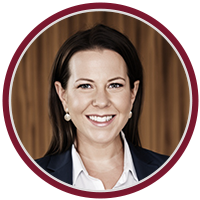When I meet first-time entrepreneurs, almost every initial conversation eventually turns to “How and where do I look for angel investors”? It’s the elephant in the room. The Everest all founders looking for funding must climb, whether or not they know how to rock climb and whether or not they have experience with extreme temperatures and altitude.
Approach # 1: Utilize your network.
The first approach is the one you already know and that is obvious: go through your network. It’s the best option if you have it. Angel investors get inundated with cold emails and don’t open them. This is not a situation where the numbers game will eventually get you to the desired result. In fact, many investors firmly believe that if you can’t make an introduction happen, you can’t make a company happen.
Your course of action here is the following:
- Identify which investors fit your company’s objectives and which investing criteria you meet. Explore Crunchbase to obtain information on their past investments.
- Use your network to get a warm intro.
BUT what about all those people who DON’T have a network in the investing community, but DO have a brilliant idea and an MVP (minimum viable product) to go with it? Is there any hope for THEM to find capital? Luckily, the answer is “YES”. In this article and the corresponding video I discuss four other approaches you can use in this case.
Approach # 2: Apply to an accelerator.
Accelerators are schools for entrepreneurs that help you either to develop your idea into a minimum viable product or to grow your business further in terms of validating your business model, getting traction, etc.
Very importantly, all accelerators end with a Demo day where you have an opportunity to present your company in front of investors and raise capital. Even if you don’t end up closing on any financing then, you can still use the connections you made later, when you are ready for a funding round.
If you are wondering how to choose an accelerator, check out this blog we wrote on this topic and this database for a list of 400+ accelerators in the U.S.
Approach # 3: Enter a pitch competition.
Pitch competitions are another great option for those entrepreneurs who don’t have many investor connections. Just like on a Demo day, you get to present your business, but this time to a panel of judges who are all early-stage investors. Furthermore, a winner usually gets a prize which is either cash, services, or both. Startupalooza is a very popular New York pitch competition.
That said, generally, you should use pitch competitions not so much as a way to raise or win money, but to practice your pitch, get feedback on your value proposition, and meet investors – not only those on the panel but other attendees as well.
Finally, there are organizations, such as The Hatchery, which host matchmaking events between investors and founders.
Approach # 4: Use crowdfunding.
Crowdfunding has become a very popular way for founders to raise money. There are a number of crowdfunding platforms, such as SeedInvest or Gust, that give you easy access to large pools of accredited investors. However, you would have to pay a finder’s fee as a percentage of funds raised and sometimes give up additional equity if you choose to accept this form of financing. For example, SeedInvest charges 7.5% of funds raised and 5% of equity using the valuation of the financing round they are facilitating.
If you have a consumer product or tackle a social issue, you can run your own crowdfunding campaign using sites like Kickstarter and Indiegogo. Those sites don’t attract accredited investors and you would typically offer products and other perks as compensation, rather than equity. These sites also keep a percentage of funds raised.
Approach # 5: Apply to an angel group.
Finally, you can apply to an angel group, such as New York Angels or, if you are a female founder, 37 Angels.
After a review process and if selected, you will be given an opportunity to present directly to all their members at their Demo Day. Most angel groups meet monthly or bi-monthly. As the next step, a few selected companies would undergo a due diligence process and 1-3 startups per investment cycle will get funded.
-
About Author
Victoria Yampolsky, CFA, is the President and Founder of The Startup Station, a comprehensive resource for modeling and valuing early-stage startups. She evaluates the financial feasibility of business models and specializes in the financial modeling and valuation of pre-revenue companies. She also created a finance curriculum for early-stage founders and launched The Startup Station’s educational program in 2015. Since then, more than 1,000 founders have attended her online and in-person finance classes and learned the basics of financial modeling, valuation, and startup financing.
Previously, Victoria worked for the Deutsche Bank Research Department and performed IT consulting for CapGemini’s Financial Services Division. Victoria holds a Bachelor’s Degree, Cum Laude, in Computer Science, with a minor in Mathematics, from Cornell University and an MBA, with honors, from Columbia Business School. Victoria is also on the Advisory Board of the Computing and Information Science (CIS) Department of Cornell University.
Still have questions?
We are happy to talk to you. Book a FREE 30-min consultation now by pressing the button below and, as a bonus, we will send you a COMPLIMENTARY financial health checklist.

 “Victoria is one of the smartest, and most talented financial analysts out there. She has created the financial models for 2 of my companies, to which we have raised over $20M using her financials and valuation reports. She is very professional and always makes you prove the assumptions:) She will always be a vital part to my businesses.”
“Victoria is one of the smartest, and most talented financial analysts out there. She has created the financial models for 2 of my companies, to which we have raised over $20M using her financials and valuation reports. She is very professional and always makes you prove the assumptions:) She will always be a vital part to my businesses.” “Victoria truly helped “break me in” as a CEO and startup founder. With her guidance, we’ve discovered the best routes to forming a business model according to the specific needs of my company. From monetization avenues to acquisition strategies and everything in between, Victoria patiently guided me and diligently crafted a meticulously laid-out plan and financial model I feel confident, even proud, to present to prospective investors, as it points to the breadth & scope of work we’ve accomplished together. Victoria is also extremely generous with advice, resources, and introductions. I currently work with a marketing team she introduced to me and I am very happy with them, as well.”
“Victoria truly helped “break me in” as a CEO and startup founder. With her guidance, we’ve discovered the best routes to forming a business model according to the specific needs of my company. From monetization avenues to acquisition strategies and everything in between, Victoria patiently guided me and diligently crafted a meticulously laid-out plan and financial model I feel confident, even proud, to present to prospective investors, as it points to the breadth & scope of work we’ve accomplished together. Victoria is also extremely generous with advice, resources, and introductions. I currently work with a marketing team she introduced to me and I am very happy with them, as well.” “Victoria really distilled down the financial model to the inputs that need to be discovered in order to determine business viability. Her attention to detail and experience show in taking those inputs and filling out the rest of the model. These are the real numbers that you need for investors.”
“Victoria really distilled down the financial model to the inputs that need to be discovered in order to determine business viability. Her attention to detail and experience show in taking those inputs and filling out the rest of the model. These are the real numbers that you need for investors.” “Victoria provided me with great knowledge for the financial projection and reviewed my pitch deck where she provided me with great pointers. She definitely is somebody I count as my inner circle of advisors and recommend her as the go to person for any start up.”
“Victoria provided me with great knowledge for the financial projection and reviewed my pitch deck where she provided me with great pointers. She definitely is somebody I count as my inner circle of advisors and recommend her as the go to person for any start up.” “We are a couple of engineers going through lot’s of trials and errors trying to launch our startup so meeting with Victoria was priceless in terms of getting a fresh unbiased perspective on our business model and getting advice on how to move forward.
“We are a couple of engineers going through lot’s of trials and errors trying to launch our startup so meeting with Victoria was priceless in terms of getting a fresh unbiased perspective on our business model and getting advice on how to move forward. “I have the greatest appreciation for Victoria’s contribution in analyzing financial trends and developing the monetization strategies for my business. She is not only an experienced financial analyst, but she is also very creative and gave my business many important suggestions. I felt comfortable and willing to reveal information easily, which helped make the valuation process easier. Victoria can see the big picture almost immediately, and at the same time she is a stickler for details. These attributes make her a perfect financial advisor and mentor for entrepreneurs. Further, Victoria, once given a task, is completely dedicated to it. She has a keen ability to process and synthesize information and make the right decisions, and she comes with the highest recommendation.”
“I have the greatest appreciation for Victoria’s contribution in analyzing financial trends and developing the monetization strategies for my business. She is not only an experienced financial analyst, but she is also very creative and gave my business many important suggestions. I felt comfortable and willing to reveal information easily, which helped make the valuation process easier. Victoria can see the big picture almost immediately, and at the same time she is a stickler for details. These attributes make her a perfect financial advisor and mentor for entrepreneurs. Further, Victoria, once given a task, is completely dedicated to it. She has a keen ability to process and synthesize information and make the right decisions, and she comes with the highest recommendation.” “Victoria is an amazing resource that every start-up should have. She is whip smart and diligent. We worked with her on the valuation of our company and she’s been an invaluable resource in refining our assumptions, revenue and expenditure models. If you think you understand the fundamentals of your own business model, talk to Victoria and get ready to learn so much more!”
“Victoria is an amazing resource that every start-up should have. She is whip smart and diligent. We worked with her on the valuation of our company and she’s been an invaluable resource in refining our assumptions, revenue and expenditure models. If you think you understand the fundamentals of your own business model, talk to Victoria and get ready to learn so much more!” “I had the pleasure of working with Victoria for building a working financial model for my business. Her expertise and acumen are not only impressive, but her personable nature made her a joy to work with as well. She was able to offer valuable insights and direction as we strategically built out a financial model, utilizing reliable data assumptions that translate to a usable document for my business. The result and end-product proved the value of both the time and monetary investment. I couldn’t recommend her enough as a resource for any entrepreneur looking to build out a financial model, financial roadmap and/or valuation of their enterprise.”
“I had the pleasure of working with Victoria for building a working financial model for my business. Her expertise and acumen are not only impressive, but her personable nature made her a joy to work with as well. She was able to offer valuable insights and direction as we strategically built out a financial model, utilizing reliable data assumptions that translate to a usable document for my business. The result and end-product proved the value of both the time and monetary investment. I couldn’t recommend her enough as a resource for any entrepreneur looking to build out a financial model, financial roadmap and/or valuation of their enterprise.” “Victoria Yampolsky came highly recommended by a colleague of mine and I’ve been fortunate to work with her! She completed the valuation and the financial model for our startup, EnergyPoints. Her unique framework for modeling early-stage ventures allowed us to refine our business plan and use strategy and industry standards to credibly formulate assumptions. Victoria is a Columbia Business School grad and CFA, and her company, The Startup Station, has done 100s of valuations and has an impressive track record. She presented her valuation to two national banks with our accountant, and in both scenarios, she was praised by the level of detail that went into her extensive valuation. I can’t recommend her highly enough!”
“Victoria Yampolsky came highly recommended by a colleague of mine and I’ve been fortunate to work with her! She completed the valuation and the financial model for our startup, EnergyPoints. Her unique framework for modeling early-stage ventures allowed us to refine our business plan and use strategy and industry standards to credibly formulate assumptions. Victoria is a Columbia Business School grad and CFA, and her company, The Startup Station, has done 100s of valuations and has an impressive track record. She presented her valuation to two national banks with our accountant, and in both scenarios, she was praised by the level of detail that went into her extensive valuation. I can’t recommend her highly enough!” “Victoria was a key advisor for Predictive People – as an early stage startup we had tons of questions and we needed professional guidance to sort them out. I am really glad we had her by our side to solve them all, ending with a solid business plan and financial projections. I can’t recommend her more, she’s professional, fast, empathetic, and incredibly smart, a true partner for any startup.”
“Victoria was a key advisor for Predictive People – as an early stage startup we had tons of questions and we needed professional guidance to sort them out. I am really glad we had her by our side to solve them all, ending with a solid business plan and financial projections. I can’t recommend her more, she’s professional, fast, empathetic, and incredibly smart, a true partner for any startup.” “Victoria is trustworthy, knowledgeable and customer-focused startup strategic CFO. I’ve been impressed since day 1 with the responsiveness, thoroughness and overall professionalism of Victoria. According to the traditional scenario of almost all early stage startups, the founders are involved in all processes of the company formation. So I am no exception without having a financial education, without professional Excel skills – I nevertheless decided to build a financial model on our own. Honestly, it seemed impossible. But in the end, we did it in a total of 3 weeks. I want to express my deepest gratitude for professionalism and incredible talent to motivate all of our team members. Victoria has a unique ability to get into the essence of the business very quickly, to think very flexibly and innovatively – which is very important for our startup.
“Victoria is trustworthy, knowledgeable and customer-focused startup strategic CFO. I’ve been impressed since day 1 with the responsiveness, thoroughness and overall professionalism of Victoria. According to the traditional scenario of almost all early stage startups, the founders are involved in all processes of the company formation. So I am no exception without having a financial education, without professional Excel skills – I nevertheless decided to build a financial model on our own. Honestly, it seemed impossible. But in the end, we did it in a total of 3 weeks. I want to express my deepest gratitude for professionalism and incredible talent to motivate all of our team members. Victoria has a unique ability to get into the essence of the business very quickly, to think very flexibly and innovatively – which is very important for our startup. “I was a student and client of Victoria through The Startup Station and cannot highlight enough how helpful the process was for our company in reaching our first funding milestone and personally for me. Victoria is a fantastic teacher and recommend her financial modelling courses to anyone. We also worked one to one to refine our company model/financial roadmap and Im proud of my newly developed, ninja-level Excel skills. Paraphrasing from someone famous “Clarity trumps confidence any day of the week” and it’s what I feel from working with Victoria.”
“I was a student and client of Victoria through The Startup Station and cannot highlight enough how helpful the process was for our company in reaching our first funding milestone and personally for me. Victoria is a fantastic teacher and recommend her financial modelling courses to anyone. We also worked one to one to refine our company model/financial roadmap and Im proud of my newly developed, ninja-level Excel skills. Paraphrasing from someone famous “Clarity trumps confidence any day of the week” and it’s what I feel from working with Victoria.” “Building a financial model with Victoria and The Start Up Station for a mutual client was an illuminating experience!
“Building a financial model with Victoria and The Start Up Station for a mutual client was an illuminating experience! “Victoria is a rare find in the startup world. She’s brilliant with startup financial strategies and has this no-nonsense work ethic that proves to deliver results. Victoria worked with a participant of 2020 Startups, a startup founder, and within a couple of months the founder raised capital. Victoria has done several workshops and speaking engagements at 2020 Startups and is always insightful and held in the highest regard by the audience.”
“Victoria is a rare find in the startup world. She’s brilliant with startup financial strategies and has this no-nonsense work ethic that proves to deliver results. Victoria worked with a participant of 2020 Startups, a startup founder, and within a couple of months the founder raised capital. Victoria has done several workshops and speaking engagements at 2020 Startups and is always insightful and held in the highest regard by the audience.” “Victoria and The Startup Station Team were absolute game-changers for Ovaterra. Victoria served as my right-hand CFO through fundraising, M&A, liquidity crises and more — always guiding the ship with calm, detail-oriented and strategic advice. I would recommend her and her team to any Founder or executive who needs a strategic, fractional CFO to guide your business to the next level.”
“Victoria and The Startup Station Team were absolute game-changers for Ovaterra. Victoria served as my right-hand CFO through fundraising, M&A, liquidity crises and more — always guiding the ship with calm, detail-oriented and strategic advice. I would recommend her and her team to any Founder or executive who needs a strategic, fractional CFO to guide your business to the next level.” “Victoria, we raised $1.4M! It’s finally
“Victoria, we raised $1.4M! It’s finally  “In business, and especially with startups, getting to a place of clarity around the business and financial models can be challenging even for the most experienced professional. Victoria brings the right mix of business and financial know-how and quickly understands the moving pieces. As such, she’s able to provide an excellent product, a deeper sense of understanding about the project based on its’ needs, and a sense of calm and assurance that the challenges faced will be dealt with in a way that drives growth.”
“In business, and especially with startups, getting to a place of clarity around the business and financial models can be challenging even for the most experienced professional. Victoria brings the right mix of business and financial know-how and quickly understands the moving pieces. As such, she’s able to provide an excellent product, a deeper sense of understanding about the project based on its’ needs, and a sense of calm and assurance that the challenges faced will be dealt with in a way that drives growth.” “I had the pleasure of working closely with Victoria as fractional CFO of our startup. Her expertise in business and financial modeling is truly exceptional. Victoria played a pivotal role in helping our company think through every aspect of our business, and her ability to create a comprehensive model was nothing short of impressive. She not only provided a clear plan for our future but also identified areas where we could improve and grow.
“I had the pleasure of working closely with Victoria as fractional CFO of our startup. Her expertise in business and financial modeling is truly exceptional. Victoria played a pivotal role in helping our company think through every aspect of our business, and her ability to create a comprehensive model was nothing short of impressive. She not only provided a clear plan for our future but also identified areas where we could improve and grow. “If you’re raising capital and want to shine when pitching to investors, I highly recommend you choose Victoria Yampolsky and the Startup Station as your resource for high performance results. Victoria is extremely well versed in all aspects of raising capital and the startup landscape. She provides clients with outstanding tools, applicable advice and thoughtful insights to support their fundraising efforts.
“If you’re raising capital and want to shine when pitching to investors, I highly recommend you choose Victoria Yampolsky and the Startup Station as your resource for high performance results. Victoria is extremely well versed in all aspects of raising capital and the startup landscape. She provides clients with outstanding tools, applicable advice and thoughtful insights to support their fundraising efforts.